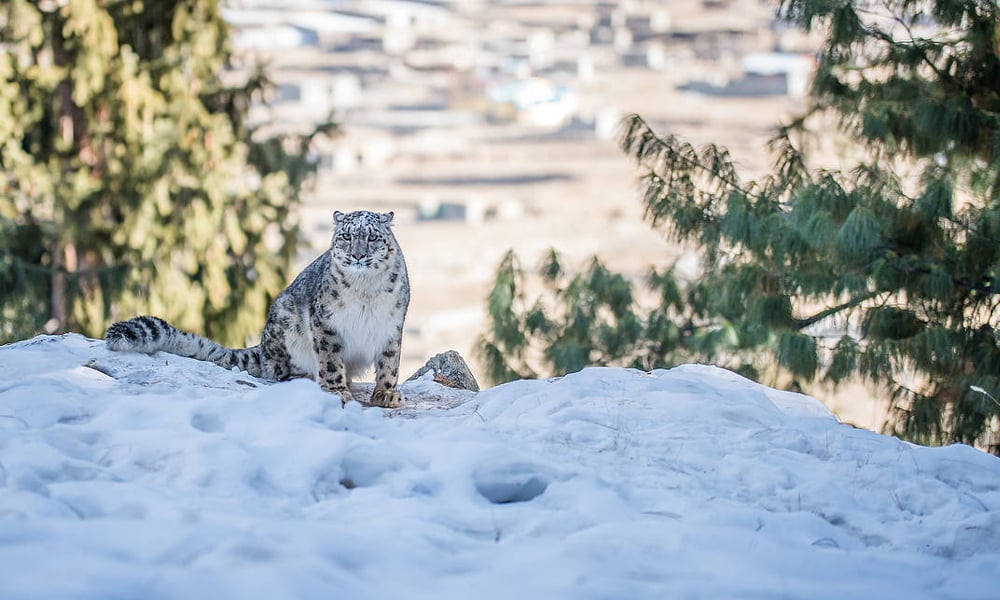Islamabad, May 19, 2025: The World Wide Fund for Nature (WWF) Pakistan this week has voiced strong opposition to a proposed plan to relocate endangered snow leopards in Pakistan from northern areas to Moscow Zoo, urging the government to strengthen its local rehabilitation efforts.
Various studies have shown that snow leopard is mysterious animal, hence it is difficult to record its exact population in the distribution range across Central and South Asia.
However, a 2020 WWF research report indicate that fewer than than 7,000 snow leopards exist in the wild, with an estimated 200 to 420 believed to inhabit Pakistan’s northern mountain ranges including the Gilgit-Baltistan region, Khyber Pakhtunkhwa (KP), and Azad Jammu Kashmir (AJK).
In a statement released on Saturday, WWF-Pakistan confirmed that it had formally addressed the climate change ministry, saying that it opposed the potential transfer of two snow leopards, currently housed at the Naltar Rescue and Rehabilitation Center in Gilgit-Baltistan, to the Russia’s Moscow Zoo.
READ MORE: WWF-Pakistan considers incorporating climate change into policy and stakeholder initiatives.
The WWF said it had emphasized in the letter that such a move would not only contradict national and international conservation commitments but also risk setting a “highly detrimental precedent” for the future transfer of other endangered and symbolic animal species from Pakistan.
“WWF-Pakistan expressed its deepest concern and opposition to the move and demanded that the proposed export of snow leopards be immediately canceled,” the non-government organization said.
“The organization also called for the reaffirmation of Pakistan’s commitment to the conservation of its iconic wildlife species and emphasized upholding the obligations under international agreements.”
It said that the snow leopard in Pakistan, listed as an endangered species on the IUCN Red List for threatened species (2017), receives the highest level of legal protection under Pakistan’s national and provincial wildlife legislation.
This also extends to Gilgit-Baltistan and AJK, the statement added.
READ MORE: Bank Alfalah and WWF-Pakistan Collaborate to Conserve Indus River Blind Dolphin and Address Climate Change Effects
Additionally, the species is listed under Appendix I of the Convention on International Trade in Endangered Species of Wild Fauna and Flora (CITES), which strictly prohibits commercial trade except in extraordinary and non-profit contexts.
“It further said there is no compelling conservation rationale for transferring these snow leopards to Russia, a country that already hosts a significantly larger wild population of the species,” WWF-Pakistan said.
In addition, WWF-Pakistan encouraged national authorities to lead by example and safeguard the species within its native habitat.
“The organization also highlighted the risk that once the snow leopards are transferred, it would be difficult to monitor or ensure the well-being of these animals under Russian jurisdiction,” it added.
Hammad Naqi Khan, director general of WWF-Pakistan, said that the approval of this transfer would reverse decades of conservation progress and harm Pakistan’s international position in the global conservation community.
“We need to uphold Pakistan’s obligations under international agreements such as CITES and the Convention on Migratory Species (CMS) by prioritizing the protection of vulnerable and critically endangered species within national borders,” Khan said.









